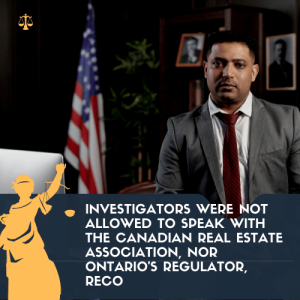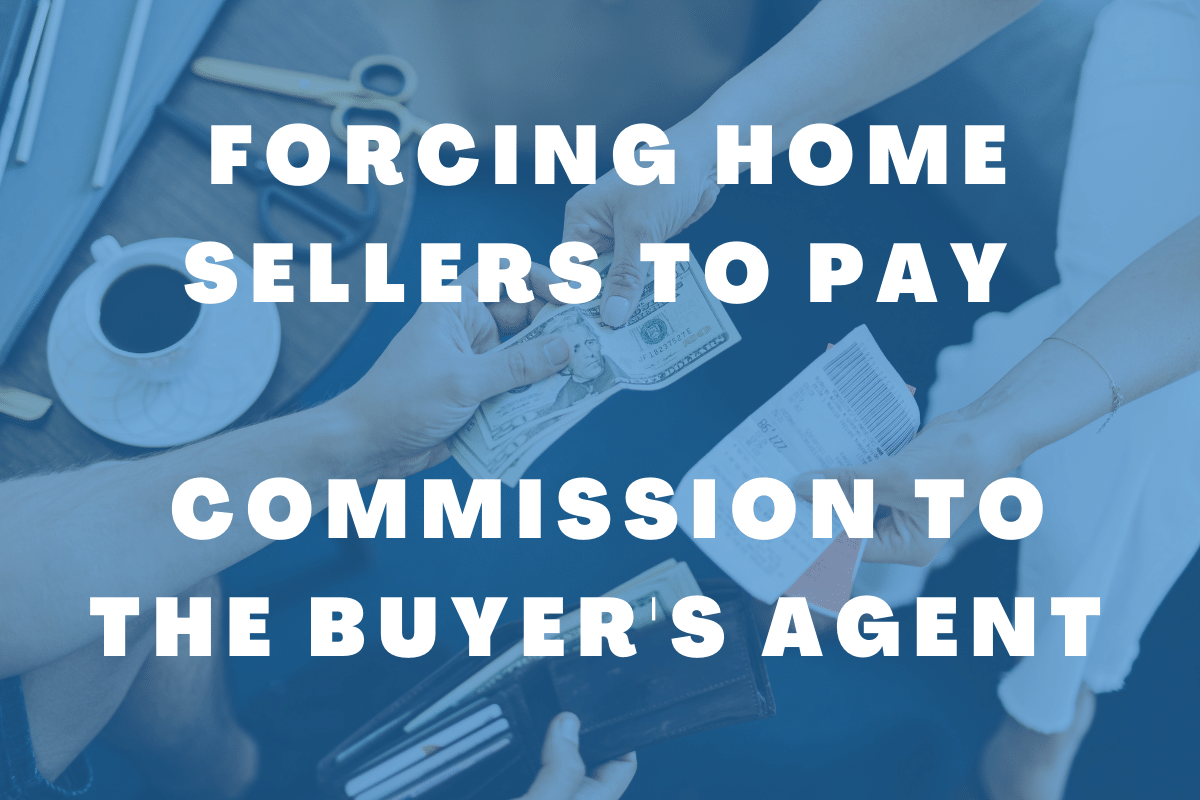Real Estate Rules and Commission
The meteoric rise in housing costs has dominated much of the conversation about Canada’s real estate market. However, it’s easy to forget about the parallel rise in Canadians paying real estate commissions almost every time a house is sold or bought.
A brokerage representing a buyer would have received a commission of $8,795 in 2005 in the Greater Toronto Area. However, in December 2021 the brokerage representing the buyer would make $36,230. This is four times the commission earned by the brokerage, according to Dr. Panle Jia Barwick.
This jump is to put it in perspective: The median household income increased by only 14 percent between 2005-2019, after accounting for inflation.
This discrepancy is only one of many points in a recent suit that alleges price-fixing in Canada’s realty market and anticompetitive behavior.
On April 9, 2021, Mark Sunderland, a Toronto resident, filed a class-action lawsuit. It claims that some of the nation’s most prominent brokerages, including Century 21, ReMax, and IproRealty Ltd., as well the Canadian Real Estate Association and the Toronto Regional Real Estate Board, conspired, agreed, or arranged to fix, maintain and increase the price… of buyer brokerage services in Toronto.
Although commission structures can vary from one country to the next, real estate agents and brokerages typically charge a percentage-based fee on the sale of a home. It’s seven percent on the first $100,000 in Alberta and B.C. and three percent on the remainder. Other parts of the country have commissions ranging from four to five percent.
These are the allegations
The seller pays the entire commission. However, the commission is split between the brokerage representing them as well as the brokerage representing the buyer.
Sunderland claims that the agreement, known as the buyer brokerage rule, was created by the Toronto Residential Real Estate Board and the Canadian Real Estate Association. It requires residential real estate sellers to pay the buyer’s brokerage commission.
Similar practices are also found in many other real-estate boards across the country.
The lawsuit claims that this arrangement has hindered competition in the market by forcing sellers to pay more for services they don’t need.
“It’s no typical smoky-room conspiracy; it’s open and public,” stated Garth Myers, a partner at Kalloghlian Myers LLP. Kalloghlian Myers LLP filed the case for Sunderland and all those who have sold a GTA home since 2010.
This alleged price-fixing effect can be felt even by those who do not offer the standard commission rate, according to Barwick, an economist who focuses on the commission structure in the real estate industry.
She wrote that the buyer brokerage commission rule “creates an incentive and ability for buyer brokers to ‘steer away’ buyers from residential real estate property where sellers offer lower buyer brokerage commissions,” as part of the research Kalloghlian Myers LLP commissioned for the case.
She writes that sellers can be compelled to offer the standard commission merely because they fear this might happen.
Realtor.ca makes it possible for real estate agents and brokers to see the amount of commission on offer, but the public is not allowed to see this information.
Similar lawsuits have been certified in the U.S.
Sutherland’s suit is similar to the class action case currently underway in the U.S. against the National Association of Realtors and America’s largest real estate brokerages.
The U.S. class action was also certified last month. It alleges that anticompetitive conduct occurred in the real estate sector, leading to home sellers from the U.S. paying inflated commissions.
Stephen Brobeck, a senior fellow who was previously the executive director of Consumer Federation of America, an organization that is based in Washington, D.C., said, “Tens of trillions of dollars are at stake.” His research has informed the U.S. case.
Brobeck said that the industry is trying to maintain a pricing cartel in terms of commissions. He noted that it’s something that’s already happening in Canada and the U.S.
The average Canadian home sells for $746,000. The full commission, which is split between buyer and seller’s brokerages, amounts to between $26,330 to $37,300. The average commission in Toronto is more than $62,000 before taxes.
Sunderland paid a standard commission of 2.5 percent to his buyer’s agent, according to his lawyer.
Myers stated that “His view” and the one he supported in the case was that he had to pay the 2.5 percent because of a price-fixing conspiracy between the brokerages in GTA.
The market sets the rate and not MLS rules or collusion among brokerages.
– Rui Alves, CEO iPro Realty Ltd.
The Canadian Real Estate Association and Toronto Regional Real Estate Board filed a motion in March 2022 to dismiss the whole action as lacking “reasonable cause of action.” This motion will be heard in the fall.
Another defendant in the suit said that he believes the case lacks merit.
Rui Alves (chairman and CEO of iPro Realty), stated that “our business is very competitive” in a statement to CBC News. “It is the market that sets rates, not MLS rules and collusion between brokerages,” Rui Alves, chairman, and CEO of iPro Realty said to CBC News.
iPro Realty encourages sellers to offer the area’s prevailing rate — or might suggest that the buyer’s brokerage offers a higher commission rate in a slower market.
“This shows that our fees are not fixed, but only react to the fees of competitors in the area. Just like any other business would.”
CBC News reached out to Century 21 and ReMax. Century 21 Canada stated that it does not believe the claim has merit, but it declined further comment.
ReMax stated that it would not comment on the ongoing litigation.
Steering commissions in real estate
 A 2021 investigation on the topic of steering by agents in real estate found that consumers are not exaggerating their concerns.
A 2021 investigation on the topic of steering by agents in real estate found that consumers are not exaggerating their concerns.
Investigators went undercover to pretend they were homebuyers searching for a Vaughan, Ont., home. The team asked three local agents to schedule viewings at three properties for potential buyers. One offered only one percent commission to agents, while the other two were standard for the area.
The commission was low, and one agent made it clear and offered to negotiate. However, the other agents didn’t tell buyers and discouraged them from viewing the house.
Real estate agents are caught in violation of the law by investigators. They use their commissions to block private sellers, hinder competition and keep them high.
The agents advised the buyers that the house was too expensive by $200,000 and claimed the owners wouldn’t budge on it. Another agent informed the buyers that she could not book a viewing and suggested that the property might be occupied by tenants. This would make it difficult for many people to move in
Producers also called 25 real estate agents across America to pose as sellers in an attempt to sell a house. 88% of agents were against lowering the commission rate for buyers’ brokerages when they were asked.
An agent in Halifax said that agents might be aware of the money they are being paid and may push buyers to other homes.
“I’ve had agents tell me that they are looking at two houses, and they’re both good fits, but I’m definitely kind of massaging them towards mine because there’s more to it for the Realtor,” said another Winnipeg agent.
Investigators were not allowed to speak with the Canadian Real Estate Association, nor Ontario’s regulator, RECO. RECO sent a notice to all 93,000 real estate brokers, agents, and brokerages that it had come across, noting that such behavior was against its code of ethics.
The notice stated that the conduct was not only illegal but also undermined consumer protection, consumer confidence, and the reputation of real estate professionals as a whole.
It’s not common for sellers to offer rates that are lower than the standard buyer’s commission. Alan Spivak, a Toronto real estate agent, stated that less than 1% of all listings in Toronto were represented by sellers who offered commissions below 2.5% to buyer brokerages.
He wrote, “This is consistent in my experience for all residential property in the GTA since at least 2010” in an affidavit that was included in Sunderland’s statement of claim.
How to increase competition
Barwick writes that if there weren’t buyer broker commission rules, services would be more competitively priced. Buyers would pay for their representation and negotiate prices or skip the service entirely. It is already common in Australia and the U.K. Buyers and sellers are responsible for their representation, and commission rates there are lower.
Brobeck stated that this would encourage sellers to work harder with listing agents, and that commission rates would likely drop.
Brobeck’s research shows that “decoupling” real estate commissions could result in standard rates dropping by 1 to 2 percent over the course of a few years.
Canadian Real Estate Association stated to CBC News that it wouldn’t comment on Sunderland because it was before the courts. Another defendant in the case was Toronto Regional Real Estate Board. It has stated that it had no involvement in and did not discuss REALTOR®, commissions.

